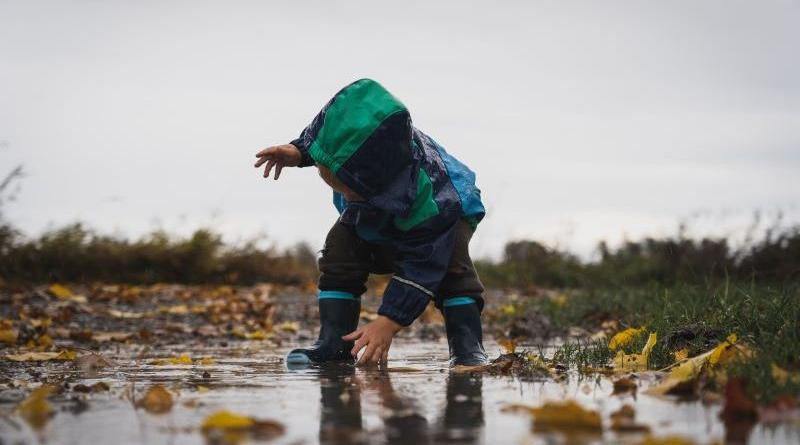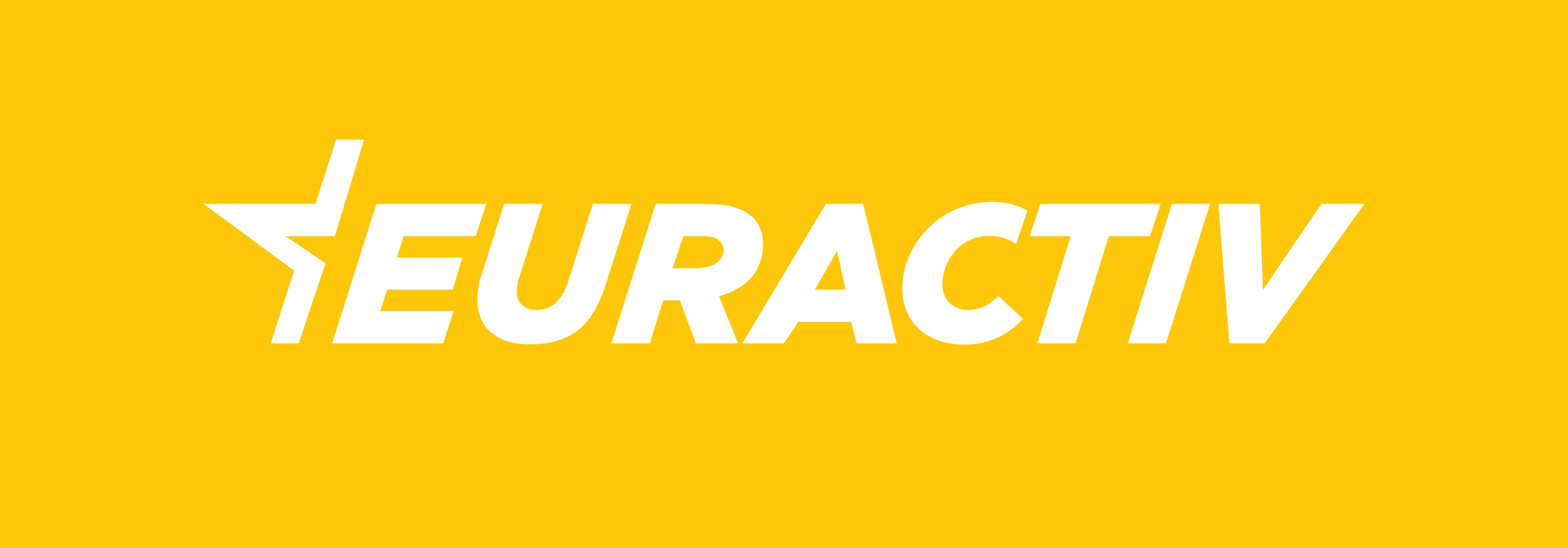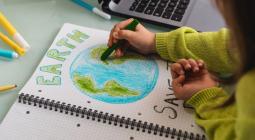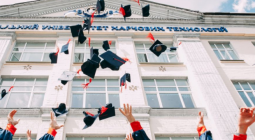Empowering the Next Generation: Nature-Based Solutions Education

In the face of glaring evidence for stepping up actions against climate change for our future generations, learning for sustainability is still in its infancy. The results of a global survey indicate that about 70% of the youth doubt the quality of climate change education and think there is need for improvement.
Shreya Utkarsh is Nature-based Solutions and Biodiversity officer at ICLEI Europe. Kassia Rudd is Strategic Communications & Campaigns officer at ICLEI Europe and former garden educator.
In Europe, nature is intertwined with a rich cultural heritage and diverse landscapes, offering many opportunities to connect with nature. As environmental challenges escalate rapidly and the adverse effects are felt increasingly, there is an urgent need to equip future generations with education and employment in the field of sustainable development. This isn’t just our opinion: 67% respondents of the Eurobarometer survey see protecting the environment and fighting climate change as a priority. What’s more, over half of respondents call for an improvement in education and training. Despite strong support for sustainability education, a 2021 UNESCO study revealed that 45% of national education documents studied (inc. some European countries) made little to no mention of environmental themes. Biodiversity was even more poorly represented, failing to appear in 81% of all evaluated educational strategies.
This gap in education for sustainable development is being noticed: European commission identifies “providing teachers, trainers, youth leaders and academic staff with quality professional development opportunities on the environment and sustainability” as the number one action item. Making sustainability a cross-cutting issue in curricula and study programmes came in a close second.
Urgent calls from the European youth and general populations for better education for sustainability are being heard and the Commission is reacting. The recent council recommendation to member states on learning for environmental sustainability states that “education and training systems and institutions have a duty to respond to the growing youth voice on the climate and biodiversity crises and involve young people in designing solutions related to learning for environmental sustainability.”
On a global level, UNESCO has urged all countries to make environmental education a core curriculum component by 2025, indicating their support for speedy action. EU level policy also highlights support for environmental education – the EU Biodiversity Strategy for 2030 in particular states a need to improve knowledge and awareness for biodiversity conservation. Within this context, nature-based solutions (NbS) have arisen as a promising tool for supporting biodiversity globally in partnership with communities.
Nature-based solutions, defined by the EC as:
Solutions that are inspired and supported by nature, which are cost-effective, simultaneously provide environmental, social and economic benefits and help build resilience. Such solutions bring more, and more diverse, nature and natural features and processes into cities, landscapes and seascapes, through locally adapted, resource-efficient and systemic interventions. Nature-based solutions must therefore benefit biodiversity and support the delivery of a range of ecosystem services.
Moreover, NbS are increasingly gaining attention not only within the field of sustainability action, but as a potential teaching tool. In Europe, environmental education is either imparted as a standalone subject, part of a subject (in most cases science) and/or as a multi-disciplinary approach to teaching. The growing focus from the European commission on NbS education with tools such as the GreenComp Framework and Horizon projects such as NBS EduWORLD and CoolSchools is building momentum to incorporate NbS into school curricula.
Prioritising environmental education in schools and extra-curricular programs isn’t just trendy, the many benefits it brings are backed up by research. Biodiversity education through formal (i.e. school day lessons) and non formal (i.e. youth led initiatives, vocational training etc.) pathways can increase respect and concern for nature. Because knowledge and attitude are often linked, improved eco-literacy could result in more meaningful sustainable action over students’ lifetimes. What’s more, attitudes towards nature can change over time – especially in response to the hands-on and joy-filled learning opportunities offered by NbS education programs.
Bringing NbS into schools plants the seed for future generations to develop skills and competencies in the field of sustainability. By fostering a love of the environment and building green job expertise, NbS lessons create informed voters, change makers, and future professionals. When information is contextualised in the real world, it can be easier to remember, resulting in better performance in school. Hands-on learning can also increase student motivation and interest across academic subjects.
With all this evidence in support of a hands-on whole school approach paired with bringing NbS into the classroom, you might be wondering why more teachers aren’t already on board. Despite the many reasons to invest in NbS education financially and politically, and ample teacher interest, many teachers simply lack the resources and support. Training for NbS education is not easy to find, outdoor learning spaces may not be nearby, and funding for supplies may be lacking.
It is no wonder that so many teachers, despite interest, may feel overwhelmed by the thought of bringing the outdoors into their schools. Luckily, there are many existing examples of schools around the world adding hands-on education to their teaching without overburdening teachers. Small scale classroom gardening and citizen science are two examples of many. Planting seeds in (re-purposed) see-through bags can allow students to observe the plant parts and growth habits of very different plants. Participating in a community science program such as the Cornell University Celebrate Urban Birds initiative gives students direct experience collecting and analysing data, and teaches them about animal behaviour and local habitats.
For the uninitiated, finding these programs is the first barrier, and identifying curricular connections the second. Luckily, EU Horizon projects such as NbS EduWORLD are taking steps to help teachers connect with these resources, reducing barriers to finding relevant local lessons by storing lessons in one place as well as Massive Open Online Courses (MOOCs, i.e. Exploring Nature-based Solutions in Your Classroom) and curriculum development campaigns. NetworkNature, an EU Horizon project dedicated primarily to the communication of NbS research and tools, is beginning to explore the role of education in combating climate change equitably, justly, and effectively.
The evidence is clear-Nature-based solutions have the potential to address many of today’s societal and ecological challenges. Integrating NbS into teaching materials should be a key part of efforts to educate young learners on potential solutions to address ongoing climate change and biodiversity challenges. This requires urgent action on the part of educators, but also by national, regional and local decision-makers.
Curious to learn more about the potential of NbS education? Read the brief Integrating Nature-based Solutions in Education: Unlocking the Potential of Transformative Learning for Sustainability by Shreya Utkarsh, and check out the NetworkNature Annual Event: Enabling transformation through and for nature-based solutions taking place in Brussels June 8th, 2023.
cover photo:[Unsplash / Andre Taissin]






